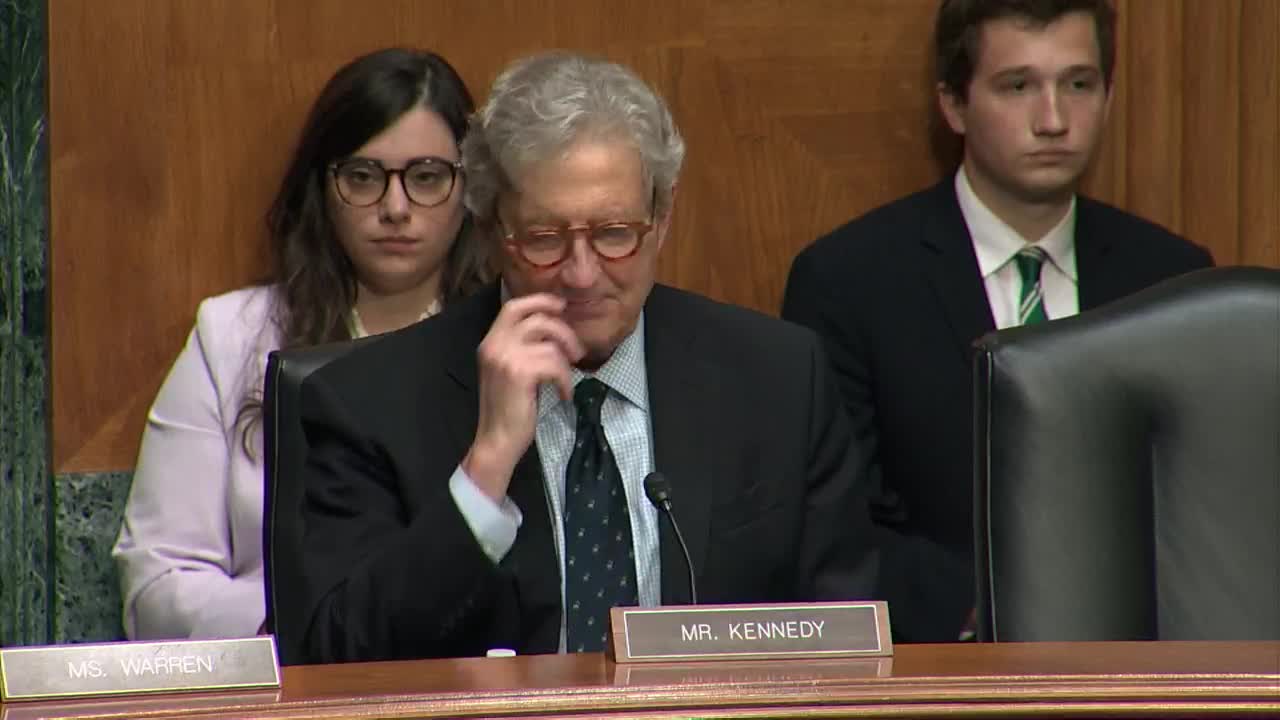Elon Musk's potential move to General Motors sparks debate
July 30, 2024 | Banking, Housing, and Urban Affairs: Senate Committee, Standing Committees - House & Senate, Congressional Hearings Compilation, Legislative, Federal
This article was created by AI summarizing key points discussed. AI makes mistakes, so for full details and context, please refer to the video of the full meeting. Please report any errors so we can fix them. Report an error »

During a recent government meeting, a provocative discussion emerged surrounding employment contracts and non-compete agreements, sparked by a hypothetical scenario involving Elon Musk and General Motors. The scenario posited that if Musk were to leave Tesla for a staggering $50 billion annual salary at GM, the company would likely require him to sign a non-compete agreement to protect its intellectual property.
The conversation highlighted the broader implications of such agreements in the corporate world, particularly in high-stakes industries where innovation and proprietary information are critical. Participants debated the fairness and legality of imposing non-compete clauses on high-profile executives like Musk, questioning whether such restrictions hinder competition and innovation.
This discussion reflects ongoing tensions in labor markets, especially in technology and automotive sectors, where talent mobility is crucial for growth and development. The meeting underscored the need for a balanced approach that protects corporate interests while fostering an environment conducive to competition and employee freedom. As the landscape of employment contracts continues to evolve, the implications of these agreements remain a significant topic for policymakers and industry leaders alike.
The conversation highlighted the broader implications of such agreements in the corporate world, particularly in high-stakes industries where innovation and proprietary information are critical. Participants debated the fairness and legality of imposing non-compete clauses on high-profile executives like Musk, questioning whether such restrictions hinder competition and innovation.
This discussion reflects ongoing tensions in labor markets, especially in technology and automotive sectors, where talent mobility is crucial for growth and development. The meeting underscored the need for a balanced approach that protects corporate interests while fostering an environment conducive to competition and employee freedom. As the landscape of employment contracts continues to evolve, the implications of these agreements remain a significant topic for policymakers and industry leaders alike.
Don't Miss a Word: See the Full Meeting!
Go beyond summaries. Unlock every video, transcript, and key insight with a Founder Membership.
✓
Get instant access to full meeting videos
✓
Search and clip any phrase from complete transcripts
✓
Receive AI-powered summaries & custom alerts
✓
Enjoy lifetime, unrestricted access to government data
30-day money-back guarantee
